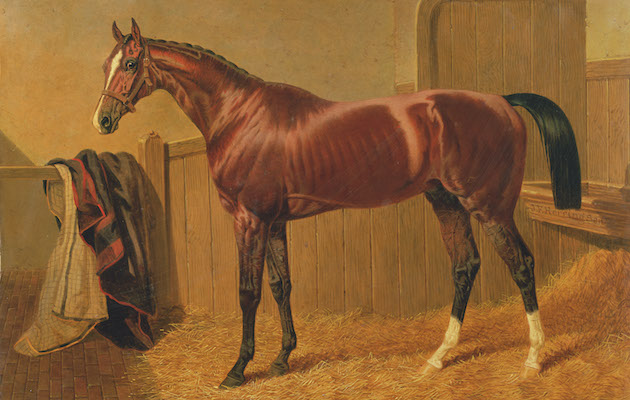The Derby might not match the betting heat of the Grand National, but it's considered one of the most revered equine events in the country, if not the world, says Rory Fairfax of Fitzdares
The Derby takes place this weekend (7 June 2025) on the hallowed turf of Epsom racecourse. Here’s a look back at the history of this revered equine event, and the controversial 1844 running of the race
The Derby: the controversial 1844 renewal
The name of the Derby was settled on the flip of a coin in 1779, after a tête-à-tête between Sir Charles Bunbury and Edward Smith-Stanley, the 12th Earl of Derby, when celebrating the first running of the Oaks. Sir Charles got over this disappointment the following year, when Diomed won the first-ever Derby. It wasn’t until 1787 that his friendly rival Lord Derby broke his maiden.
Neither man, however, would have guessed the race would be so prestigious almost 250 years later. It has grown into the most revered equine event in the country, if not the world, with breeding operations placing the utmost stock in a Derby winner’s pedigree. While it doesn’t quite match the betting heat of the Grand National, it still provokes huge gambling interest. Over the years, Fitzdares have laid many an ante-post bet to hopeful owners and trainers, all the way back to 1882, when our carrier pigeons would deliver the result to London.
However, nothing has ever created as much controversy as the 1844 renewal. With a well-established national interest, it was already the race to win as an owner and trainer – so much so that not everyone wanted to play by the rules.
A few weeks before the race, horse owner Lord George Bentinck expressed concern to The Jockey Club that some of his peers had been attempting to cheat by running a four-year-old – a year older than is permitted in the race. However, the club dismissed his concerns and all the declared runners went forward. On the day, an outsider called Running Rein won the race, ahead of Orlando [shown above] in second place.
Booed at The Derby
Yet instead of being clapped into the winners’ enclosure, Running Rein was booed; the crowds had sensed something was up. The rules stipulated that only the owner of the second-placed horse could appeal the result – convenient, then, that Orlando’s owner was Colonel Jonathan Peel, Bentinck’s close friend. Col Peel sued Running Rein’s owner, Anthony Wood, on 1 July 1844.
Then the plot thickened. While Wood was found innocent of all wrongdoing, a man called Abraham Goodman Levy became the focus of attention. A notorious gambler, he was the original owner of Running Rein and also owned a four-year-old horse called Maccabeus. With hair dye and sheer audacity, he had disguised Maccabeus to look like Running Rein – part of his cunning plot to land a Derby gamble.
This trickery was uncovered after mountains of evidence was compiled; the hairdresser who provided the dye was summoned, and the presence of Running Rein was requested in court. When Goodman was unable to produce the horse, his guilt was in no doubt.
Furthermore, in all the hoo-ha, it transpired that another fake horse had been in the race, and had been put down after a clash of hooves. Needless to say, Orlando was awarded the race, and Lord Bentinck continued to pursue laws to tighten the rules. It is fair to say we haven’t seen anything like the events of 1844 in the Derby since.
Historical odds of 100/1
The 1913 Epsom Derby produced the unlikeliest and most tragic set of circumstances. The 6/4 favourite, Craganour, was controversially disqualified, leaving 100/1 shot Aboyeur to claim the win. However, despite those lofty odds, that result sadly wasn’t the most surprising event of the day. Midway through the race, suffragette Emily Davison jumped in front of the runners and was struck by King George V’s horse, Anmer. She suffered horrific injuries, dying four days later. Eighty-three years on, in 1996, jockey Alex Greaves became the first woman to ride a horse in the race.
You might also like to read
Steaming beer tents, roaring crowds and local heroes — the gung-ho spirit of a point-to-point is as alive as ever, says Rory Knight Bruce.





